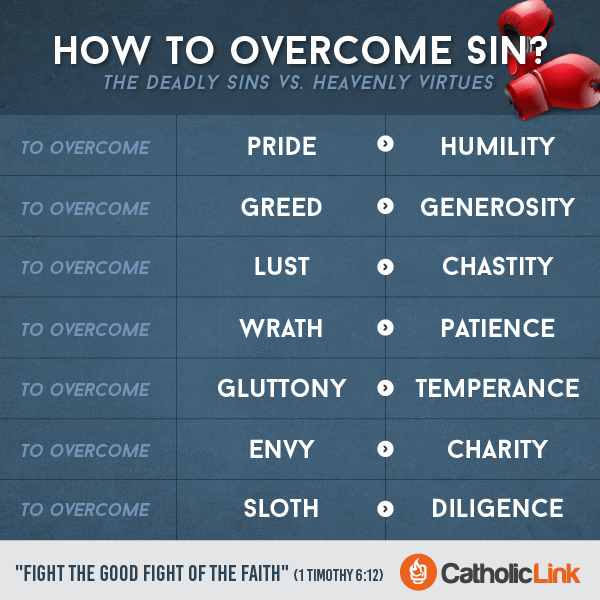Two years ago, after I’d been in my current job for several years, I felt I’d finally get the promotion for which I’d longed. In my mind, I deserved it. And, based on subtle clues from my boss and others, I thought it was coming.
I told my family it was coming. I was excited to contribute more to the college savings we were building for our sons. I was ready to celebrate.
Then, on the day promotions were announced, my name wasn’t listed among them.
I was crushed.
Although I congratulated my co-workers who were promoted, inside, I wasn’t truly happy for them. Instead, my heart burned with envy. I was disheartened, frustrated, and even a bit angry.
I couldn’t admit that maybe they deserved the promotions more than me, and I couldn’t stop wishing I was in their position.
What is Envy and Why is it so Bad?
St. Thomas Aquinas defined envy as “Sorrow for another’s good” (Summa Theologica). I’m embarrassed to say that’s exactly how I felt.
Saint James, in his epistle, knew that envy is a problem. And it’s a problem that breeds problems.
“Show by your good life that your works are done with gentleness born of wisdom. But if you have bitter envy and selfish ambition in your hearts, do not be boastful and false to the truth. Such wisdom does not come down from above, but is earthly, unspiritual, devilish. For where there is envy and selfish ambition, there will also be disorder and wickedness of every kind.” (James 3:13-16)
Envy isn’t just bad, it’s devilish. It’s from Satan himself. And it breeds all sorts of disorder and wickedness.
It’s some bad stuff.
James proceeds to tell us that disorder and wickedness appear wherever there’s any sort of envy.
When I learned I was bypassed for that promotion, I began to consider the reasons why. And, due to my envy—my sorrow for another’s good—I blamed everyone but me. In doing so, my thoughts were completely disordered and, dare I say, wicked.
Unfortunately, it’s not the only time I haven’t been happy for others.
I envy my friends who have bigger houses, better jobs, or an overflowing bank account.
I envy parents who I think have done a better job raising their kids than me.
I envy the success of authors whose words are read by thousands more readers than mine.
Instead of being happy for the success of those folks, I often tear them down in my mind with a bunch of “buts”.
He has a great job, but he works so many hours he barely sees his family.
She has lots of money, but she inherited most rather than working for it.
He’s a popular author, but he had connections at a publishing house that allowed him to break into the industry.
Rather than being happy for others, we often mope about, trashing others to make us feel better about our own lives.
But do we actually feel any better?
I know I don’t.
If anything, I feel horrible afterward. Do you?
But how can we feel better?
Love: The Antidote To Envy
“Charity is the theological virtue by which we love God above all things for His own sake, and our neighbor as ourselves for the love of God.” (Catechism of the Catholic Church 1822)
This definition is derived from Jesus’ own words:
“You shall love the Lord, your God, with all your heart, with all your soul, and with all your mind. This is the greatest and the first commandment. The second is like it: You shall love your neighbor as yourself. The whole law and the prophets depend on these two commandments.” (Matthew 22:37-40)
I’d argue that the fullness of charity—complete love of God and of others—is the only thing that can truly counteract the envy that creeps into our lives.
We shouldn’t, however, merely love our neighbors. Instead, we should love them as ourselves.
That is, of course, easier said than done.
How can we love someone who’s got it better than us? Someone who, perhaps, is living the life we wish we were living?
Instead of focusing on what others have, maybe we should appreciate our own blessings.
Who’s got it better than us?
Jack Harbaugh, father of NFL coaches John and Jim Harbaugh, lived his life with gratitude. And nowhere is this clearer than in the words his sons still preach to their players.
It starts with John or Jim asking their players, “Who’s got it better than us?”
The players then respond, in unison, by shouting “Nobody!”
The Harbaughs realize that, instead of looking at what others have, they remember what God has given them.
Shouldn’t we do the same?
Jesus gave His life for us. He loves us. He wants the best for us. He wants us to live with Him forever.
Does it get any better than that?
In realizing that God has given us more than we deserve—and, of course, all that we need—we can also see that no one can really have it any better than us.
Rather than envying others, we should instead love them so much that we want them to enjoy God’s love as well. We can do this by sharing the Gospel directly, and also by showing them God’s love by sharing our gifts, time, and treasure.
Isn’t that how we’d want others to treat us? Isn’t that loving our neighbors as we love ourselves?
If we replace wanting more with true gratitude, then our envy will naturally dissolve.
That’s how I got past the whole promotion debacle. I recognized my own blessings: faith, family, and financial. I thanked God for what He’s provided. And I focused on loving the folks closest to me, even those with more earthly “blessings”.
In case you’re curious, I was eventually promoted. But even if I hadn’t been, it wouldn’t really matter. I’d still be happy for the others who were.
After all, who really has it better than me?
How To Overcome The 7 Deadly Sins
More Resources On The 7 Deadly Sins
Pocket Guide to Overcoming the Seven Deadly Sins
Image: Photo by Anthony Tran on Unsplash













